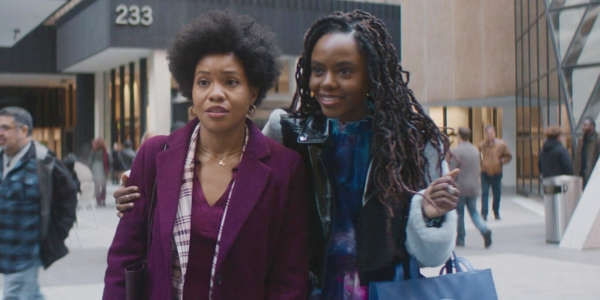The Hulu series ‘The Other Black Girl’ delves into the challenges faced by Black women in the corporate world, drawing inspiration from Zakiya Dalila Harris’s novel. Initially, it presents itself as a captivating mystery-thriller, skillfully blending genre conventions with less explored themes. However, as the series unfolds, it unfortunately falls short of its source material. What begins as a standard thriller evolves into an average sci-fi-infused tale of Black horror, reminiscent of Jordan Peele’s work but failing to reach its depth.
Adapted from the New York Times bestseller, the show follows Nella, the only Black editorial assistant at Wagner Books, a prestigious New York publishing house. Her daily life is filled with subtle microaggressions, exemplified when she raises concerns about a problematic Black character in a manuscript to her boss, Vera. While Vera sympathizes, she advises Nella to suppress her feelings due to the author’s bestseller status. Nella contemplates quitting, yearning for a workplace where she’s recognized for her talent and surrounded by people who look like her.
Her wish seems granted when she befriends a new assistant, Hazel. Their shared interests create a strong bond, but their friendship takes a sinister turn as Hazel’s arrival coincides with strange dreams and unusual coincidences. Mysterious notes and bizarre discoveries push Nella to question Hazel’s true intentions, turning their friendship into a cat-and-mouse game.
The series heavily relies on Ashleigh Murray’s impressive performance as Hazel. Her transition from a sweet demeanor to disconcerting bursts of anger showcases her immense talent. Additionally, the show’s soundtrack, curated by music supervisor Tiffany Anders, featuring tracks from Tyler the Creator and Caroline Polacheck, adds depth to the story’s exploration of complex friendships and desires.
While ‘The Other Black Girl’ attempts to uncover the competitiveness within female friendships, it falters in its execution. Rather than focusing on the challenges of assimilation and workplace racism faced by two talented Black women, it introduces intriguing hints of cults and double lives that lead to mediocre representations of secret societies.
Unfortunately, the series succumbs to familiar sci-fi horror tropes, reminiscent of recent Black horror films like ‘Get Out.’ In an era when cinema and television should strive for new narratives, ‘The Other Black Girl’ feels behind the times, leaving viewers wondering if they’ve seen it all before.
The discussions about Blackness in the series, while important, feel like reiterations of previously explored stories, lacking the freshness and depth needed to stand out in a crowded field. Had this adaptation emerged around the time of ‘Get Out,’ it might have been more appealing, but in its current state, it falls short of expectations.
‘The Other Black Girl’ premiered on Hulu on September 13th.

